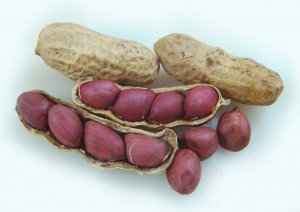
New peanut allergy therapy shows 84 per cent success
A new therapy for peanut allergy has been successful in the majority of the 99 children who took part in a trial conducted by researchers at Addenbrooke's Hospital in Cambridge, UK.
The results of the trial, published on 28 January in the journal The Lancet, found that 84 per cent and 91 per cent of the two groups of children treated with the new form of immunotherapy could eat at least five peanuts a day.
Peanut allergy affects one in fifty children in the UK and is the most common cause of fatal food allergy. In the UK, around half a million people are affected, and over 10 million people worldwide. Unlike other childhood food allergies, such as cow's milk, peanut allergy rarely goes away.
People with peanut allergy risk anaphylactic shock or even death if they become accidentally exposed to a peanut. Researchers said the fear of accidental exposure in food reduces the quality of life of people with the allergy and severely limits the social habits of allergic individuals, their families and even their friends.
Study method
The research, which was supported by the Medical Research Council and National Institute for Health Research (MRC-NIHR) partnership, involved young people aged between six and seven, eating daily doses of peanut protein.
Starting with a tiny dose and slowly building up over four to six months, they trained their bodies to tolerate the equivalent of five whole peanuts.
The research team, led by Dr Andrew Clark and Dr Pamela Ewan, have been leading allergy research for more than 20 years.
"Before treatment, children and their parents would check every food label and avoid eating out in restaurants," Dr Clark said. "Now most of the patients in the trial can safely eat at least five whole peanuts. The families involved in this study say that it has changed their lives dramatically," he said.
The researchers said the large study was "the first in the world to have had such a good outcome", and was an important advance in peanut allergy research.
The trial was carried out over five and a half years in the NIHR Wellcome Trust Clinical Research Facility at Addenbrooke's, part of Cambridge University Hospitals (CUH). It was funded by the MRC-NIHR partnership through the Efficacy and Mechanism Evaluation (EME) Programme. Initial pilot work was funded by the Evelyn Trust, Cambridge.
Plans to open a clinic in the UK
Researchers said the next step was to make peanut immunotherapy widely available to patients. Further investigation and a licensing review would be required to obtain a product license from the regulatory authorities, which would take several years. In the meantime, CUH is planning to open a peanut allergy clinic that would make a range of services, including immunotherapy on a named patient basis, available to patients. A CUH spokesperson said it was working with partners on private and publicly funded models.
"The fantastic results of this study exceed expectation," said Maureen Jenkins, Director of Clinical Services at Allergy UK. "Peanut allergy is a particularly frightening food allergy, causing constant anxiety of a reaction from peanut traces. This is a major step forward in the global quest to manage it," she said.
Other AFN reported breakthroughs
Australian Food News has reported recently on other research breakthroughs in the area of peanut allergy. In January 2014, a study in the US found that pregnant mothers need not avoid peanuts to prevent allergy to the food in their children, and in August 2013, other US research found that blocking a particular enzyme in mice prevented inflammation and reduced levels of proteins associated with allergic reactions.




